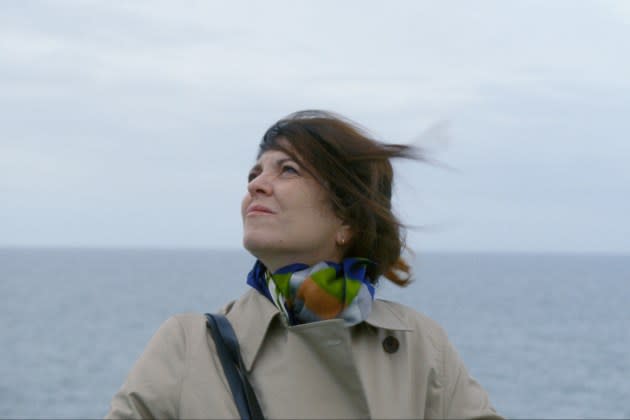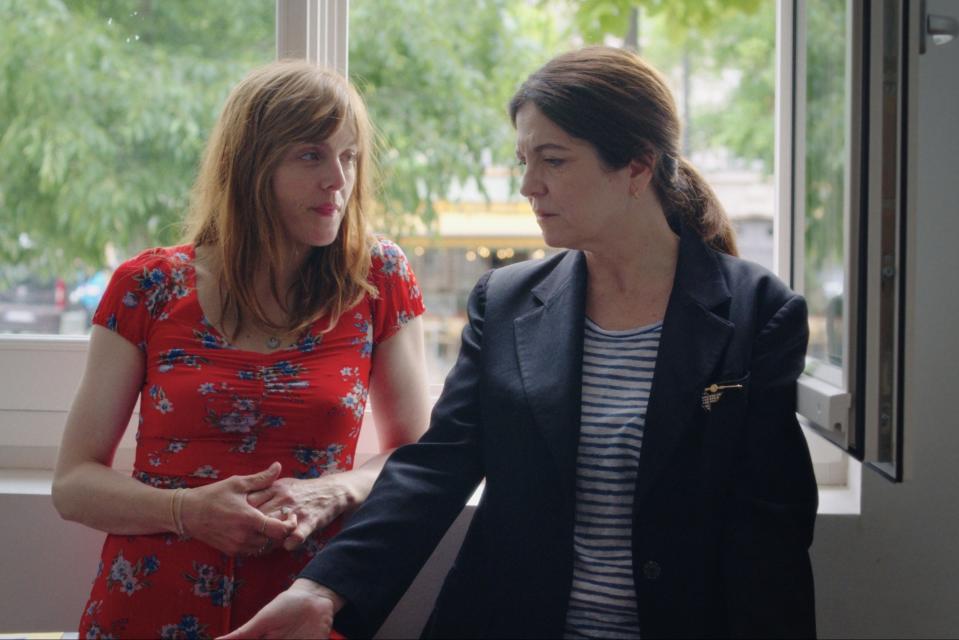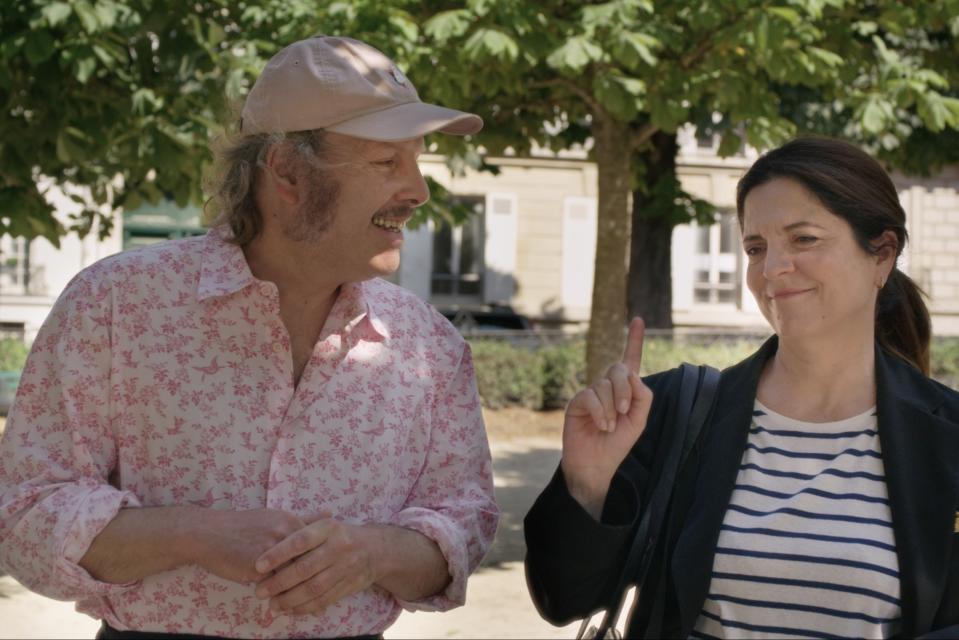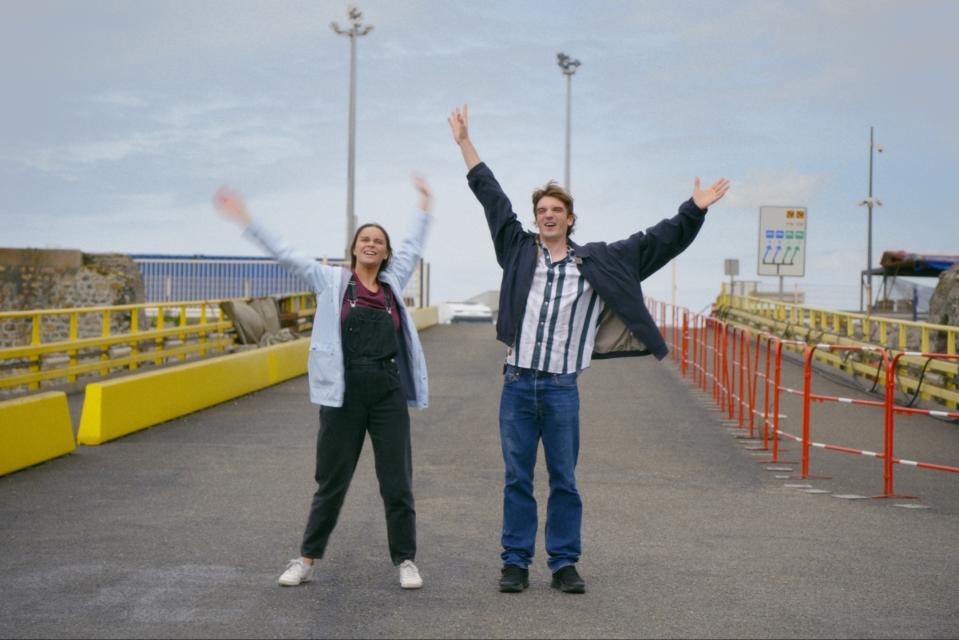The Tragedy and Triumph of Sophie Fillières’ ‘This Life of Mine’: Justine Triet, Director’s Children and More Reflect on Her Final Film Ahead of Cannes Premiere
- Oops!Something went wrong.Please try again later.
- Oops!Something went wrong.Please try again later.
- Oops!Something went wrong.Please try again later.

Shortly before last year’s Cannes Film Festival, director Sophie Fillières attended a cast and crew screening of “Anatomy of a Fall.” The filmmaker had a supporting role in the film, playing the deceased’s sister, and she soon celebrated her work’s Palme d’Or win from afar, hanging back in Paris, where she was preparing to shoot her seventh feature, “This Life of Mine.”
The five-week production kicked off in late June, running smoothly and wrapping on the last day of July. The next day, Fillières checked into the hospital; in less than a month, she was gone.
More from Variety
If hardly offsetting the shock and hurt of her passing, Fillières leaves behind a remarkable legacy, as her final film will open this year’s Director’s Fortnight while a generation of French talents now looks to her with awe.
“Seeing Sophie’s work for the first time gave me the impression of discovering a tone I didn’t know could exist in French cinema,” says “Anatomy of a Fall” director Justine Triet. “She pointed out a new way to make films that confronted the difficulties of everyday life in such a unique and humorous tone. And that was so unusual, and so very reassuring.”
Calling Fillières her “cinematic big sister,” Triet adds: “Sophie’s work mixed light-heartedness, humor and absurdity while confronting some extremely harsh subjects. Her work had a kind of purity, never cheating or hiding how life really is, all while looking at the world with extreme honesty – and that’s a very precious thing. She said exactly what she thought.”
Through films like “Pardon My French,” “If You Don’t, I Will” and “Gentille” Fillières explored creative and personal neuroses, marital discord and therapeutic psychobabble through an unrivaled love of language, collapsing fact and fantasy and dreary prosaism of the daily grind in a tone inspired by her lifelong interest in poetry.

And that unique voice spoke to many across France.
“I was a fan of Sophie’s films long before [I joined the industry],” says producer Julie Salvador. “I loved her perspective, I loved the freedom she had with cinema and her belief in the power of fiction. And most of all, I admired her heroines, who were funny, complex figures. And so I waited on each new film like an event – attending the first screenings on opening day.”
For Salvador, admiration soon gave way to a professional relationship that quickly led to friendship, as the duo collaborated on Fillières’ 2018 film “When Margaux Meets Margaux” and then on her follow-up – a work the filmmaker intended to be her most personal offering to date.
“Sophie projected herself into all of her films,” says Salvador. “But none more so than in ‘This Life of Mine.’ She wanted to more deeply explore her own intimacy, threading the film with leitmotifs from her previous work.”
The process took time, as the filmmaker wrote at a deliberate and emotionally acute pace, imbuing each page with playful language and the pained irony of a rich inner life set against a more mundane existence. When Fillières started what would become her last film she had yet to fall ill; by the time the film shot was undergoing treatment.
“I wanted to believe that things would get better and that she’d pull through,” says “This Life of Mine” star Agnès Jaoui. “And as the shoot went on, it became obvious to me, and to others as well, that this was exactly what she needed.”
In the film, Jaoui plays Barbie Bichette, a poetically inclined mother of two who responds to mid-50s malaise with a mental-health break followed by a renewed vigor for life in all of its contradictions and surprises. On set, the star was adorned with her director’s own clothes, wearing jewelry with enough resonance to Fillières that the filmmaker would ask for them when production wrapped for the day.
“I had the impression that we were completely aligned, that we were one and the same,” Jaoui says. “We had a shared understanding of this character and of the film we were making. I felt like I was playing her, and once I saw the finished film, I was in shock. It sounds crazy, but I didn’t recognize myself. I didn’t see myself, I saw her; and that was the first time such a thing has ever happened to me.”

The filmmaker was hospitalized the day after production wrapped. Though she had battled illness for two years at that point, the extent of her decline arrived as a shock. While being treated in palliative care, Fillières never lost focus on her film, sharing her wider artistic intentions with her children Agathe and Adam Bonitzer and asking them to see her vision through.
“We were always very close to her cinema, and we were fans of her films,” says Agathe Bonitzer, who starred in Fillières’ “Pardon My French” and “When Margaux Meets Margaux.” “She always had us read her scripts, following the progress they came along, and she welcomed us a collaborators in her work.”
“I don’t know how else to put it, but I wouldn’t have felt right had someone other than us had finished the film,” she continues. “It felt natural, as almost a gift, really. So we tried as best we could, from what we knew about her and what she wanted for the film. What’s more, she had given us quite a few indications and notes when we were in the hospital, so we could really discuss the film with her. That was also a blessing.”
“There was obviously some apprehension, but we felt surrounded by trust, not least of all from our mother who wanted us to see this project through,” says Adam Bonitzer. “We felt like we were in good hands every step of the way, working with the crew that she had chosen.”
“Of course, there were many moments of apprehension, but I think our mother would have felt the same,” he continues. “She would have asked herself the same questions when watching the rushes and working in the editing suite, and it’s hard know what she might or might not have done differently, or how she might have acted on those same questions. All I know is Agathe and I and all of the team tried to finish our mother’s film. And when you look at ‘This Life of Mine,’ there’s little doubt about that.”
“We were – and still are – in a period of mourning,” Agathe Bonitzer says. “Maybe working on this film transformed that mourning, or maybe we put it aside to see the work through. It’s no doubt a mixture of the two, but there was something soothing and beautiful and very heavy about this process; it was full of contradictory emotions. It’s one thing to finish a film, and another to lose a parent, so ultimately those emotions are quite separate.”
And if the hurt from that deeper loss still lingers, the joy around “This Life of Mine” is never too far away.
“I don’t have the impression that this context is all so sad,” Agathe says. “Quite to the contrary, we feel like we’ve accomplished what our mother asked. So it will be very emotional to present the film in Cannes, and to do so without her, but I think it will make for a very celebratory occasion as well.”

Best of Variety
Sign up for Variety’s Newsletter. For the latest news, follow us on Facebook, Twitter, and Instagram.

